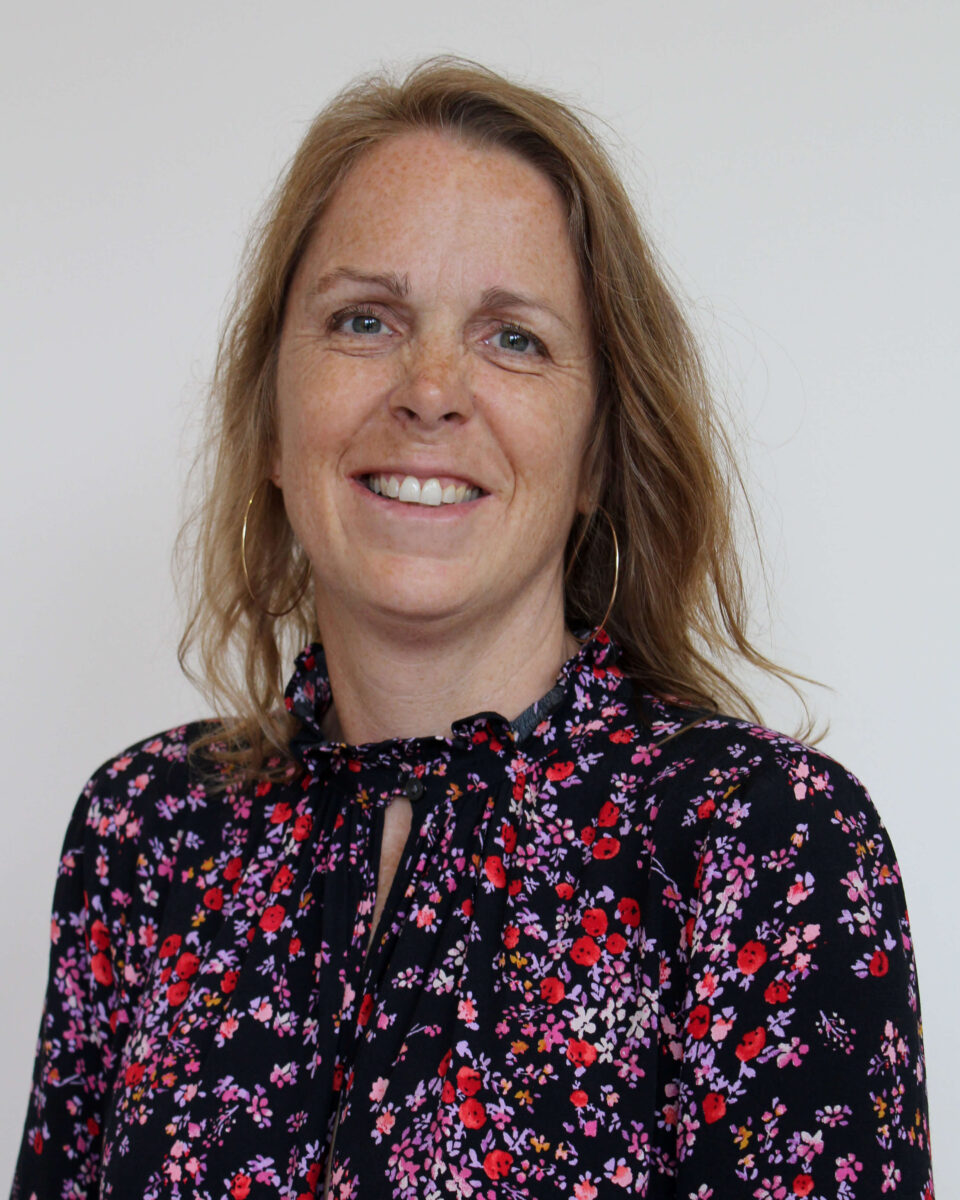Blog de Sarah: El lenguaje de ser creído
11.20.25
Categoría: Voces de sobrevivientes
Tipo: Blog
11.20.25
Categoría: Voces de sobrevivientes
Tipo: Blog
 Hace veinte años, me senté junto a mi marido en nuestra cama, las brillantes zinnias en nuestro edredón me ayudaron a prepararme para lo que tenía que decir.
Hace veinte años, me senté junto a mi marido en nuestra cama, las brillantes zinnias en nuestro edredón me ayudaron a prepararme para lo que tenía que decir.
Varios meses antes, había empezado a tener flashbacks de cómo mi padre abusó sexualmente de mí cuando era niña. Los flashbacks eran a la vez nítidos y opacos. En uno, podía sentir la alfombra corta y peluda del suelo de la habitación de mis padres arañándome la mejilla y el peso de un cuerpo encima de mí. Sabía con absoluta certeza que ese peso pertenecía a mi padre, pero no podía verlo en el recuerdo, y me preocupaba que esta aparente contradicción me hiciera menos creíble si decidía contárselo a alguien.
Durante varias semanas, me lo guardé para mí y luego me armé de valor para contárselo a mi nueva terapeuta. Había cambiado de terapeuta hacía poco después de que una vidente me dijera que debía despedir a cualquiera que no me dijera que fuera a Al-Anon en los doce minutos siguientes a hablar conmigo. La huella de haber crecido en un hogar alcohólico era evidente para ella de una forma que no lo había sido para mí. A pesar de las abundantes pruebas —incluyendo un arresto por conducir ebrio en el que su nivel de alcohol en sangre fue de 0,34, más de cuatro veces el límite legal—, no creía que mi padre fuera alcohólico porque no quería que fuera cierto.
Tampoco quería que fuera cierto que mi padre abusó sexualmente de mí cuando era niña. Así que mi cerebro usaba esa pequeña duda creada por no poder ver su rostro en el flashback para intentar decirme que no había sucedido. A pesar de la abundante evidencia —hipervigilancia, incapacidad para ser tocada íntimamente estando sobria, disociación durante el sexo, repulsión después, sentir que el sexo era un deber y que no importaba si lo deseaba—, no quería que fuera cierto. Ahora sé que aferrarme a esta duda es un mecanismo de supervivencia: hasta que supe que podía sobrevivir sin el amor y la aprobación de mi padre, no podía arriesgarme a reconocer plenamente algo que lo lastimaría o lo pondría en riesgo; irónico, ya que eso es exactamente lo que su comportamiento me hizo.
Pero, como dice Bessel van der Kolk, el cuerpo lleva la cuenta. Y mi cuerpo sabía, incluso ante las protestas de mi cerebro, lo que me había pasado. Esta certeza fue lo que me impulsó a contarle a mi esposo el recuerdo de aquel día en el dormitorio de la última casa en la que viviríamos juntos, pero no estaba preparada para su respuesta.
“No confío en los recuerdos recuperados”.
Ni palabras ni gestos de consuelo ni apoyo. Solo cinco palabras que bien podrían haber sido: «No te creo».
~
Dos décadas después, me mudé a Seattle tras haber dejado a mis hijos en la edad adulta. En cierto sentido, era libre de vivir mi propia vida, pero por otro, seguía atrapada en pensamientos y patrones de comportamiento negativos derivados del abuso. Durante un rebrote del trastorno alimentario que sufría desde la adolescencia, me asusté lo suficiente como para acudir a la clínica de salud pública a buscar ayuda. Un terapeuta de salud conductual me remitió al Centro de Recursos para la Agresión Sexual del Condado de King (KCSARC), creyendo que era la mejor manera de abordar la raíz de mi comportamiento autolesivo: el trauma sexual.
El proceso de admisión fue desgarrador: viejas pesadillas resurgieron, e incluso al comenzar la terapia, me sentía peor antes de sentirme mejor. Mi terapeuta me explicó que esto se debía a que había reducido mis conductas de evitación, las que las personas con trastorno de estrés postraumático hacen para mantener a raya los recuerdos.
Cuando le conté a mi terapeuta cómo había reaccionado mi esposo cuando le conté sobre el flashback, me relató la experiencia de una manera liberadora. Dijo que fue una experiencia de revelación negativa, algo que, según las investigaciones, puede ser más difícil para una persona que no revelar nada. Me sentí vista, escuchada y comprendida como nunca antes, incluso después de catorce años de terapia convencional con una terapeuta competente y compasiva. ¡Todos deberían tener acceso a un programa como este!, pensé.
Aun así, me encontraba presentándole repetidamente pruebas a mi terapeuta, como si intentara demostrar que había sufrido abuso sexual, algo que nadie más en mi familia admite recordar. Mi padre dijo que tendríamos que estar de acuerdo en discrepar sobre si había ocurrido o no, como si estuviéramos hablando de preferir Coca-Cola a Pepsi.
Y entonces un día mi terapeuta dijo algo que al mismo tiempo me hizo estallar en lágrimas y me inundó de alivio: “Sé que estás acostumbrada a que no te crean y quiero que sepas que no hay ninguna parte de mí que no te crea”.
Ese sí que es el lenguaje de la fe. No sabía cuánto necesitaba oírlo.
—
La línea de recursos de KCSARC está disponible las 24 horas, los 7 días de la semana, y cuenta con defensores capacitados listos para escucharlo y brindarle apoyo e información confidenciales y gratuitos para ayudarlo a determinar los próximos pasos. Cuando esté listo, llame al 1.888.998.6423.
La sanación y la recuperación de cada sobreviviente son únicas y personales. Las reflexiones y experiencias compartidas por los miembros de Voces Empoderadas son personales y podrían no reflejar las experiencias ni la trayectoria de cada sobreviviente. Las opiniones expresadas no representan la visión organizacional de KCSARC.